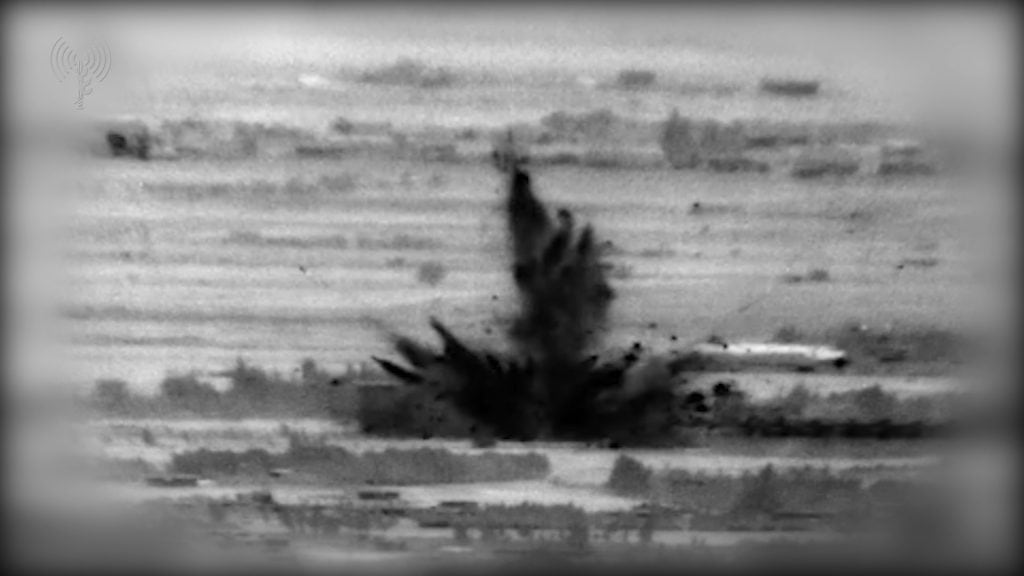
On Nov. 18, the Israel Defense Forces (IDF) attacked positions inside Syria belonging to the Syrian Armed Forces (SAF) and the Islamic Revolutionary Guards Corps’ Quds Force.
Wednesday’s attack was prompted by the IDF’s discovery of three improvised explosive devices (IEDs) on the Alpha Line near the Syrian border.
A statement by Israel’s Defense Minister Benny Gantz hinted of possible consequences against the Syrian government in response to the discovery of the IEDs.
“The IDF has the capabilities and the determination to respond severely to any incident that occurs, both on the Lebanese and Syrian fronts. A few hours ago, explosive devices were discovered on the Golan Heights. I want to say clearly that Syria is responsible for what occurs in its territory like these explosive devices as well as in the context of the continued arms smuggling to Hezbollah,” Gantz stated.
Hours after Gantz’s statement, the IDF attacked positions operated by the IRGC’s Quds Force and SAF.
“Overnight, in response to IEDs placed against Israeli troops on the Golan Heights, our fighter jets struck military targets, storage facilities, headquarters and military compounds belonging to the Iranian Quds force and the Syrian Armed Forces,” the Israeli Air Force tweeted.
Additionally, pro-Syrian regime activists reported that Israel’s airstrikes against Syrian positions resulted in the death of three air defense unit soldiers.
An exchange of messages between Israel and Iran
In early Aug. a Syrian cell was detected by a Maglan unit attempting to plant explosives on the Alpha Line. The squad was killed before they could complete their mission. Subsequently, the IDF bombed SAF bases near Damascus the following day.
Israel’s concern is that its border with Syria will turn into another Lebanon or Gaza. The Palestinian factions on its southern border and Hezbollah on its northern border has kept Israel in a state of conflict for decades. This in part, is a reason why Israel has responded strongly to attempts by pro-Iranian forces to cause harm to its soldiers at the Syrian border.
The recent attempts could be an indication of Iranian and Syrian efforts to retaliate for Israeli attacks against Axis of Resistance forces over the previous months and years. Syria and Iran have repeatedly stated they would retaliate for past Israeli attacks. The Aug. attempt and Nov. 17 discovery of IEDs may be connected to those threats.
Overall the message is clear: Israel is retaliating strongly to deter Iran and its proxies from establishing a third Axis of Resistance front on the Golan border. However, despite its failed attempts to attack Israel, Iran continues to operate in southern Syria against Israel.







